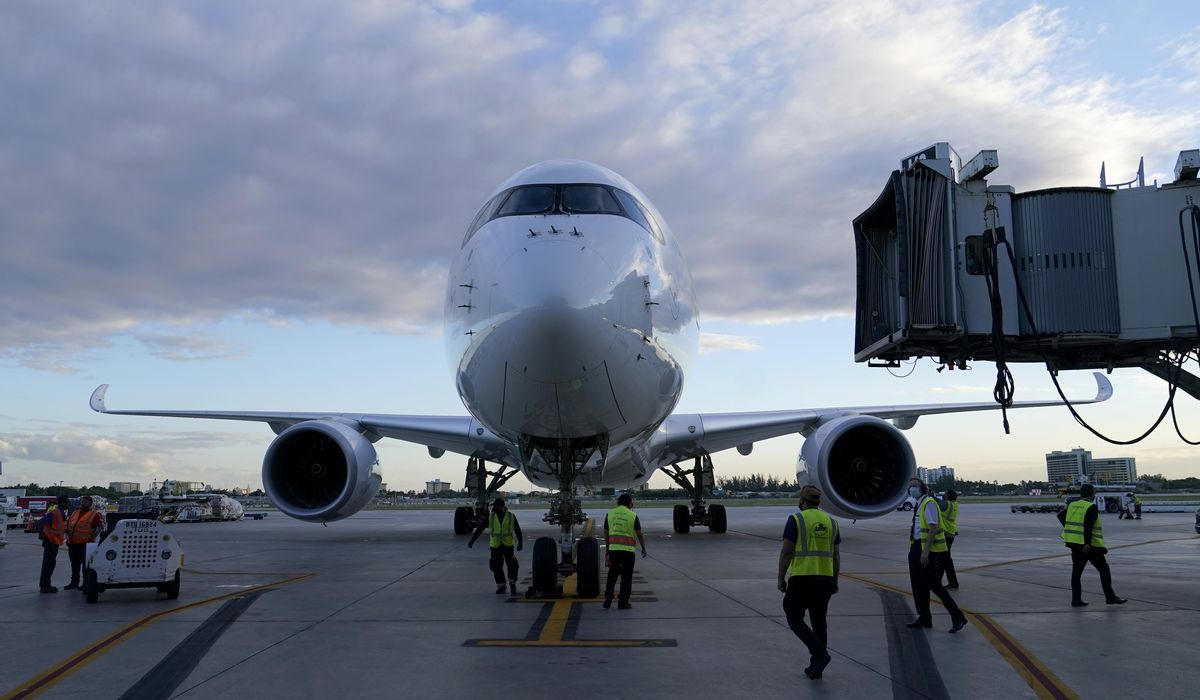
Airlines have canceled thousands of flights on Christmas Eve as cases of the new omicron variant skyrocket.
More than 2,000 flights globally have been canceled as of Friday, according to Flight Aware. Almost 500 of those cancellations were within, into or out of the U.S.
Airlines say the recent spike in omicron cases is partly to blame.
“The nationwide spike in omicron cases this week has had a direct impact on our flight crews and the people who run our operation,” United said in a statement.
“As a result, we’ve unfortunately had to cancel some flights and are notifying impacted customers in advance of them coming to the airport,” United said. “We’re sorry for the disruption and are working hard to rebook as many people as possible and get them on their way for the holidays.”
United has canceled 170 flights as of Friday morning.
Delta said inclement weather was also behind some of its roughly 135 cancellations.
“Delta teams have exhausted all options and resources — including rerouting and substitutions of aircraft and crews to cover scheduled flying — before canceling around 135 flights for Friday,” the airline said in a statement.
The omicron variant, which is highly transmissible but so far has caused mostly mild symptoms, spurred a massive increase in daily COVID-19 cases across the globe.
Airline industry leaders said the new variant will likely continue to sideline crews and cause further delays going forward.
They are also asking the Centers for Disease Control and Prevention to rethink the 10-day quarantine period requirements amid the wave.
“The omicron surge may exacerbate personnel shortages and create significant disruptions to our workforce and operations,” Airlines for America CEO Nick Calio wrote in a Thursday letter to the CDC.
“Much has changed since the initial guidance was developed and issued in 2020 and we believe that variables such as vaccine rates, improved treatments, and mask mandates should be considered as the pandemic and science continue to evolve,” he said.
A group representing flight attendants disagrees.
“We recognize that how long a person should isolate is not a ‘one-size-fits-all’ number of days,” Sara Nelson, president of the Association of Flight Attendants, said in a letter Thursday.
“We also note that fully vaccinated people may be less infectious for less time than unvaccinated people. Still, we consider your current 10-day recommendation to represent a prudent middle ground. We do not see the justification for reducing the number of days at this time,” she said.







